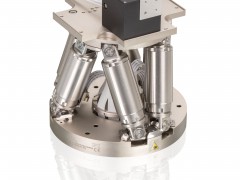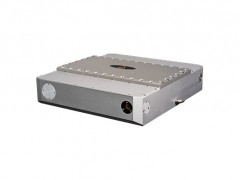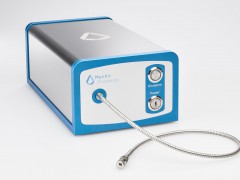
Theralase anti-cancer drug, activated by laser light, destroys throat cancer
source:LaserFocusWorld
release:Nick
keywords: Laser; Medical solution; Laser technology
Time:2017-09-21
Research conducted by Pavel Kaspler, Ph.D., a research scientist at Theralase, under the direction of Arkady Mandel, MD, Ph.D., D.Sc., chief scientific officer at Theralase, has demonstrated that FaDu was 98% destroyed at an extremely low dose of TLD-1433 (0.2 µM) when activated by green laser light (530 nm, 90 J/cm2) and 98% destroyed at a low dose of TLD-1433 (25 µM) when activated by red laser light (625 nm, 90 J/cm2).
The ability to activate TLD-1433 at both green and red laser wavelengths allows the PDC to be activated at various tissue depths corresponding to the progression of the disease.
The dark toxicity (TLD-1433, but no laser light applied) was virtually negligible when activated by green laser light and low when activated by red laser light, supporting a high safety margin in the destruction of human pharyngeal carcinoma cells.
"TLD-1433 continues to advance in the destruction of new oncology targets, demonstrating high efficacy in the destruction of numerous cancers preclinically," Mandel says. "We have strong preclinical data supporting the use of Rutherrin (TLD-1433 + transferrin) in the destruction of glioblastoma brain cancer and lung cancer and now TLD-1433 on its own in the destruction of cervical and pharyngeal cancer."
"The Theralase-licensed PDCs have proven to be very strong anti-cancer drugs in initial clinical studies for NMIBC and preclinically for glioblastoma, lung, cervical, and now pharyngeal cancer," says Roger Dumoulin-White, president and CEO of Theralase. "We look forward to successfully expanding the clinical application of our platform of PDCs, and the laser light systems that activate them, through Phase Ib clinical studies, as we expand into these new oncological targets."
- RoboSense is to Produce the First Chinese Multi-beam LiDAR
- China is to Accelerate the Development of Laser Hardening Application
- Han’s Laser Buys Canadian Fiber Specialist CorActive
- SPI Lasers continues it expansion in China, appointing a dedicated Sales Director
- Laser Coating Removal Robot for Aircraft
 FISBA exhibits Customized Solutions for Minimally Invasive Medical Endoscopic Devices at COMPAMED in
FISBA exhibits Customized Solutions for Minimally Invasive Medical Endoscopic Devices at COMPAMED in New Active Alignment System for the Coupling of Photonic Structures to Fiber Arrays
New Active Alignment System for the Coupling of Photonic Structures to Fiber Arrays A new industrial compression module by Amplitude
A new industrial compression module by Amplitude Menhir Photonics Introduces the MENHIR-1550 The Industry's First Turnkey Femtosecond Laser of
Menhir Photonics Introduces the MENHIR-1550 The Industry's First Turnkey Femtosecond Laser of Shenzhen DNE Laser introduced new generation D-FAST cutting machine (12000 W)
more>>
Shenzhen DNE Laser introduced new generation D-FAST cutting machine (12000 W)
more>>
